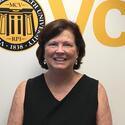Preparing Personnel to Serve Children with Disabilities (2019)
The event was open to current OSEP Grantees (State and discretionary)
This symposium focused on strategies to prepare effective personnel. The event opened with a message from OSEP Director Laurie VanderPloeg and featured experts in the field who discussed the role of personnel preparation standards, clinical practice opportunities, leadership, and partnerships between preparation programs, local educational agencies, and national organizations, in ensuring personnel are prepared to meet the needs of students with disabilities from birth through secondary transition.
Symposium Recording and Meeting Resources
Presenter Information
Evaluations
Symposium Prework
Preparing Personnel to Serve Children with Disabilities: Pre-work Resources
This page contains resources that are provided for the user’s convenience. The inclusion of these materials is not intended to reflect its importance, nor is it intended to endorse any views expressed, or products or services offered. These materials may contain the views and recommendations of various subject matter experts as well as hypertext links, contact addresses and websites to information created and maintained by other public and private organizations. The opinions expressed in any of these materials do not necessarily reflect the positions or policies of the U.S. Department of Education. The U.S. Department of Education does not control or guarantee the accuracy, relevance, timeliness, or completeness of any outside information included in these materials
CEEDAR
Learning to Teach: Practiced-Based Preparation in Teacher Education
This Special Issues Brief from the Collaboration for Effective Educator Development, Accountability and Reform (CEEDAR Center) and the Center on Great Teachers and Leaders (GTL Center) outlines essential features for providing high-quality, structured, and sequenced opportunities to practice within teacher preparation programs. This brief is intended to support states, districts, and EPPs that are striving to prepare and support excellent teachers.
Course Enhancement Modules (CEMs)
Course Enhancement Modules (CEM) include usable resources for faculty and professional development providers to include in effective opportunities for teachers and leaders to learn about and use evidence-based practices. Each CEM is designed to be used in whole or in part to support teacher and leader learning at the pre-service and in-service levels.
Recognizing that evidence-based practices (EBPs) account for at least part of the effects of teachers on achievement and the critical role of teacher preparation, the CEEDAR Center professionals, along with their partner Great Teachers and Leaders, offer innovation configurations (ICs) to promote the implementation of evidence-based instructional practices in teacher preparation activities. ICs are designed to evaluate current teacher preparation and professional development (PD) by determining the extent to which EBPs are taught, observed, and applied within teacher preparation and PD programs.
High Leverage Practices and Evidenced Based Practices Brief and Videos
High-leverage practices (HLPs) and evidence-based practices (EBPs) when used together can become powerful tools for improving student outcomes. This brief is designed to show the promise of these practices in advancing educator preparation and practice and, subsequently, outcomes for students with disabilities and those who struggle.
PSEL 2015 and Promoting Principal Leadership for the Success of Students with Disabilities
PSEL 2015 and Promoting Principal Leadership for the Success of Students with Disabilities is intended primarily for chief state school officers and their state education agency (SEA) staff. Its ultimate goal is to provide SEAs with actionable steps to promote practices and cultivate competencies for effective principal leadership where each child has an equitable opportunity to succeed with a particular focus on students with disabilities.
CEEDAR CENTER STATE POLICY PROFILE MAP: Educators Supporting Students with Disabilities
Do you know your state’s policies for educators supporting students with disabilities? With more than 60% of students with disabilities receiving services in the general education classrooms, it is imperative that states know how all educators – general and special education teachers, administrators, and support personnel – must be prepared and supported to fully engage students with disabilities with the college and career ready standards and general education curriculum. As states consider the various policies that impact teacher and leader preparation in working with students with disabilities in inclusive environments, questions arise concerning state approaches. This site provides users with information on their state policies across important levers that impact educator preparation.
Promises to Keep: Transforming Educator Preparation to Better Serve a Diverse Range of Learners
The intent of this document is to leverage the current focus of state education agencies on revising policy, and transform educator preparation to meet the needs of a diverse range of learners, especially students with disabilities.
IRIS Center
IRIS Center Online Instructional Resources to Support Pre-Service Coursework
Open educational resources about evidence-based instructional and behavioral practices, developed for use in college courses, are available on the IRIS Center website. These resources, designed to bridge the research-to-practice gap, support the education of all students, particularly struggling learners and those with disabilities. Search for resources that align with pre-service course content using the link above.
National Center for Systemic Improvement (NCSI)
The National Center for Systemic Improvement (NCSI) and the Parent Technical Assistance Center Network (PTACs) invited questions prior to, during, and after the webinar hosted on December 12, 2017, titled "Harnessing the Potential of Multiple Languages and Family Partnerships in Early Childhood Intervention and Special Education." This document synthesizes the questions and some answers and provides additional resources to build capacity in understanding and effectively serving children from birth to age five who are learning more than one language.
Got Evidence? Where to Find and How to Use It to Make Sound Decisions About Evidence-Based Practices
The term “evidence-based practice” in early childhood has its roots in evidence-based medicine and relies upon identifying and combining multiple sources of evidence to make decisions about services for young children and their families. The NCSI has created an interconnected suite of tools that explain the history and rationale behind using these multiple sources, where to look for evidence, and how to appraise and combine the evidence to inform the selection, implementation, and evaluation of specific practices for individuals or groups of children and families. NCSI hosted a two-part webinar series to introduce these tools and their application.
Technical Assistance Center for PBIS
Supporting and Responding to Student Behavior
The Supporting and Responding to Student Behavior guidance document includes an interactive map of positive classroom behavior support strategies, a self-assessment, examples of critical practices in elementary and secondary settings, non-examples of critical practices, descriptions of supporting evidence, links to resources, scenarios that illustrate implementation, and other guidelines for implementation.
The purpose of this technical guide is to summarize proactive, efficient, and evidence-based systems for supporting teachers' implementation of positive classroom behavior support (PCBS) practices school-wide. Specifically, this technical brief is designed to inform and support school and district leadership teams as they provide training, coaching, and data-based feedback to ensure teachers know how to use PCBS practices and are able to apply them effectively in their classrooms. This technical brief is designed to inform and support these decisions.
There are two main purposes of this technical guide. First, it guides educators to use data for decision-making as they implement Positive Classroom Behavior Support (PCBS) practices.2 Second, it guides school leadership teams to use data for decision making when implementing systems to support educators’ implementation of PCBS.3 Using data to guide decisions can help maximize responsiveness to students’ and educators’ needs.
Early Childhood Personnel Center (ECPC)
CEC, DEC & NAEYC Personnel Standards Alignment
ECPC collaborated with the Council of Exceptional Children (CEC) Division of Early Childhood (DEC), and the National Association for the Education of Young Children (NAEYC) to crosswalk the organization’s personnel standards for personnel serving infants and young children and their families.
ECPC Comprehensive System of Personnel Development (CSPD) Framework
The ECPC collaborated with the Early Childhood Technical Assistant Center (ECTA) to create an Early Childhood Systems Framework for Part C and section B(619) Coordinators to evaluate their current systems, identify potential areas for improvement, and develop more effective and efficient systems that support implementation of evidence-based practices in each of six main areas. The ECPC’s work resides in the Personnel/Workforce (PN) component of this framework, which addresses the necessity of understanding workforce capacity in order to provide timely and consistent services by prepared personnel in early childhood.
Center for IDEA Early Childhood Data Systems (DaSy)
Oh, the Places You’ll Go with Data on Personnel
This presentation contains information on the benefits of building a comprehensive system of personnel data. It also addresses the functions of a data system with regard to personnel and uses of data to address a important questions about personnel.
Using Data to Answer Critical Questions about EI/ECSE Personnel
This presentation uses concrete examples to demonstrate how state and local program administrators can use data to answer questions about EI/ECSE personnel, such as “What are the demographics of our program personnel?” and “What is the annual turnover rate for EI personnel in the state?”.
Critical Questions about Personnel
This handout contains critical questions that state and local leaders should ask early intervention and early childhood special education personnel.
State Data Systems and Critical Questions about Personnel
This presentation provides information on the importance of state data systems in answering critical policy and program questions about the early childhood workforce.
The Importance of Personnel Data
This presentation provides information on why states need to be able to answer critical questions about personnel and introduces the DaSy Data System Framework as a tool for improving state data systems.
A series of state maps show the current status of Part C and Part B 619 in building high quality data systems. One of the maps shows which states have data systems with personally identifiable data on personnel and another shows which states have linked personnel data to child data.
The Early Childhood Workforce Data Landscape
This presentation provides information about the importance of comprehensive workforce data collection and an overview of the primary sources of data at the state and regional level, including Part C, Section B 619, early childhood and trainer workforce registries, state teacher certification systems, and others.
This presentation discusses the importance of including IDEA programs and services in states’ workforce registries and reviews standards and tools that support states’ efforts.
National Center on Accessible Educational Materials
This is a free professional development opportunity to improve the accessibility of instructional materials. When materials are accessible, students who need them can use the same materials as their other classmates. This course includes 5 modules and can be taken at your own pace.
National Center on Intensive Intervention (NCII)
Introduction to Intensive Intervention (Self-Paced Module)
This interactive self-paced module provides the foundational information for users interested in learning more about intensive intervention and DBI. The module defines intensive intervention and DBI, describes how intensive intervention fits within a tiered system such as MTSS, RTI, or PBIS, demonstrates how intensive intervention can provide a systemic process to deliver specialized instruction for students with disabilities, and provides two case examples to allow viewers to apply new knowledge.
Features of Explicit Instruction
This course includes four modules that can support faculty and professional development providers working with pre-service and in-service educators who are learning to implement explicit instruction. The course provides learners with an opportunity to extend their understanding of explicit instruction through in-depth exposure to the explicit instruction model and supporting practices required for effective implementation.
Taxonomy of Intervention Intensity
Taxonomy of Intervention Intensity is used to systematically select or evaluate an intervention platform used as the validated intervention platform or the foundation of the DBI process. It can also be used to guide the adaptation of intensification of an intervention during the intervention adaptation step of the DBI process. The Taxonomy of Intervention Intensity includes seven dimensions (strength, dosage, alignment, attention to transfer, comprehensiveness, behavioral or academic support, and individualization). A handout with the definitions for academics and behavior as well as recorded webinars with case examples for reading, mathematics, and behavior are available.
Voices from the field: Designing Teacher Preparation to Support Teachers Implementing Intensive Intervention Part 1 and Part 2
In this two-part interview, Mary Little, Cynthia Pearl, and Dena Slanda of The University of Central Florida (UCF). In part 1 they describe Project Bridges, an Office of Special Education Programs (OSEP)-funded personnel preparation grant that recruits high-quality graduate students to acquire the knowledge and skills necessary to meet the academic and behavioral needs of students with severe and/or persistent learning or behavioral challenges and outline the critical skills needed to provide intensive intervention. In part 2 they share some successes and challenges they have faced while implementing their program.
Intensive Intervention Course: Features of Explicit Instruction
NCII, through a collaboration with the University of Connecticut and the National Center on Leadership in Intensive Intervention and with support from the CEEDAR Center, developed a course focused on enhancing educators’ skills in using explicit instruction. This course includes four modules that can support faculty and professional development providers with instructing pre-service and in-service educators who are learning to implement explicit instruction. This course is designed for users with background knowledge in intensive intervention and data-based individualization (DBI).
National Center for Leadership in Intensive Intervention (NCLII)
NCLII Intensive Intervention Practice Guides
In each guide, the authors identify an approach to intensive intervention for a select population of students with disabilities, describe the existing evidence base behind it, and discuss the next steps in research needed to improve our understanding of designing and delivering the intervention.
NCLII Scholar-Designed Courses
NCLII Scholars worked collaboratively to design college-level courses focused on an aspect of intensive intervention. The courses include 14 weeks’ worth of instructional materials, including a syllabus, PowerPoint slides, and directions for course activities, course readings, assessments, and a case study to be used in the course. Each case study provides a detailed example of at least one teacher and students involved in the DBI process.
National Deaf Center on Postsecondary Outcomes
Summary of Transition Related Resources
This is a sheet that provides a summary of resources related to transition including a video series on ADA, self advocacy strategies, and transition planning. The sheet has direct links to the resources at the NDC website.
Test Accessibility for Deaf Individuals: What professionals need to know
This is an overview of issues related to assessment accessibility for deaf test takers. The brief document summarizes test accommodations and suggestions for guidelines in providing test accommodations.
About Deafverse: This interactive game supports the development of your self-advocacy skills as you navigate common situations in a variety of settings including community, school, and the workplace. You get to test out responses to situations, challenges, and conflicts that are part of the deaf experience and frequently encountered throughout real life. When you encounter different situations, you will be expected to make your own decisions, understand the impact of these decisions, and learn more about your legal rights.
Preparation of Adapted Physical Education Itinerant Inclusion and Motor Team Specialists
APENS (Adapted Physical Education National Standards) and Physical Education Praxis II
The above materials are used by graduate students to prepare for their North Carolina K-12 license. Project PAPERS provides scholars with practice test, study sessions, and small group work sessions.
Adapted Physical Education Instructional Videos
The purpose of these APE instructional videos is to assist with teaching students with disabilities in various physical education and sport settings. The videos are produced by graduate students at UW-La Crosse who are specializing in teaching adapted physical education.
Professional Organization Resources
National Association for the Education of Young Children (NAEYC)
Power to the Profession is a national collaboration to define the early childhood profession by establishing a unifying framework for career pathways, knowledge, and competencies, qualifications, standards, and compensation. The NAEYC website houses an array of resources related to this initiative including the following:
Council for Exceptional Children (CEC)
CEC Initial Preparation Standards
In 2012, the Council for Exceptional Children (CEC) revised its Initial Level Special Educator Professional Preparation Standards. The Initial Professional Preparation Standards are designed to be used by faculty in Institutes of Higher Education (IHE) and professional development programs to guide the development, implementation, and evaluation of curricula to prepare individuals at the entry-level of special education (i.e., those individuals who do not possess a license/credential in special education).
CEC Special Education Specialist Advanced Preparation Standards
The CEC Special Education Specialist Advanced Preparation Standards are designed to be used by faculty in IHEs and professional development programs to guide the development, implementation, and evaluation of curricula to prepare individuals who already possess a special education license/credential and who are preparing to be special education specialists.
CEC Initial and Advanced Specialty Sets
The CEC Specialty Sets delineate the essential knowledge and skills that beginning special education professionals must possess to be ready to begin their practice in specific areas.
CEC Paraeducator Professional Development Standards
To ensure that paraeducators have the required skills for their expanded roles, CEC, in collaboration with the National Resource Center for Paraeducators, developed and validated the Specialty Set of Knowledge and Skills for Paraeducators in Special Education, the essential knowledge and skills that paraeducators serving individuals with exceptionalities should possess. CEC also validated an additional set of knowledge and skills for paraeducators interveners who serve individuals with deafblindness.
Early Childhood Special Education Standards Development Task Force
CEC, in partnership with the Division for Early Childhood (DEC), has launched an ECSE Standards Development Task Force. The Task Force is charged by the CEC Board of Directors with exploring the value and necessity of developing Professional Practice-Based Early Childhood Special Education (ECSE) Standards in accordance with the Council for the Accreditation of Educator Preparation (CAEP) standards development guidelines and based on the recommendations outlined in the Framing Document.
In developing this draft, the EI/ECSE Standards Development Task Force focused on performance-based competencies essential for beginning EI/ECSE educators. The work was guided by the parameters provided through CEC and CAEP and reflects alignment with DEC’s Recommended Practices. As feedback is received, the Task Force will make revisions. As drafts become more complete, supporting documents will be completed and additional feedback will be sought.
Shaping the Future of Special Education: Framing CEC’s Professional Preparation Standards
Appointed in spring 2016, the Standards Framing Paper Workgroup was created as the initial phase in the process of updating CEC standards according to the parameters and timelines prescribed by CAEP for all contributing specialized professional associations. This document provides the blueprint for the revision of CEC standards.
CEC Program Developer Resources
This webpage contains a variety of resources for individuals developing preparation programs.
Zero to Three
Competencies for Prenatal to Age 5 (P-5) Professionals
The ZERO TO THREE Competencies for Prenatal to Age 5 (P-5) Professionals provide a universal set of competencies necessary for all prenatal-5 service providers, supervisors, and managers.
How to Build a Strong Infant-Toddler Workforce
To make healthy children, strong families, and positive early learning experiences a reality for everyone, professionals in a wide variety of roles and settings must respond to the needs of infants and toddlers in partnership with families and within the context of each child’s culture, ethnicity, and primary language. This work requires a level of specialized knowledge and skill that is unique to the developmental needs of these early foundational years, as well as collaboration among practitioners. Here’s how federal and state policymakers can make this happen.
American Speech-Language-Hearing Association
The revised Quality Indicators are now available. The Quality Indicators (QIs) are a self-assessment tool to help academic and clinical programs with the successful integration of research and clinical practice.
Academic and Clinical Teaching Tools
The articles and resources on this page will enhance educator's ability to impart knowledge and understanding to students in today's classroom and include resources on technology and its impact on how information is delivered in today's university. The clinical teaching resources provide an overview of the joys and challenges of clinical education unique to audiology and speech-language pathology, as well as specific guidance on preparing students to become effective practitioners.
Report on Emerging Areas of Clinical Practice
An American Speech ASHA National Office team was formed to address one of the strategies within ASHA's 2005-2007 Strategic Plan pertaining to the identification of emerging areas of clinical practice in audiology and speech-language pathology.
The Value of the Undergraduate Degree in Communication Sciences and Disorders (CSD)
Communication is fundamental to all of human activity. The bachelor’s degree in communication sciences and disorders (CSD) is centered around the basic science of human communication including biological, physical, social, and linguistic aspects, and this basic science is used as a lens to develop understanding of what happens when communication is impaired.
Strategic Planning for Programs
The purpose of this resource is to assist academic programs in communication sciences and disorders with successful strategic planning that is consistent with the mission and vision of their institution.
Assessment in Higher Education
Explore links to ASHA and outside sources designed to assist administration and faculty in establishing and assessing program goals, institutional goals, and student learning outcomes to improve the quality of education. This resource was designed with both individuals new to assessment in higher education and those with years of experience in mind.
American Occupational Therapy Association
Current ACOTE Accreditation Standards
The Accreditation Council for Occupational Therapy Education (ACOTE®) is an Associated Advisory Council of the Executive Board of the American Occupational Therapy Association (AOTA®). ACOTE® is recognized as the accrediting agency for occupational therapy education by both the United States Department of Education (USDE) and the Council for Higher Education Accreditation (CHEA).
Find resources about fieldwork education including Level I and Level II fieldwork, resources for new programs, and more!
National Council on Learning Disabilities
Teacher training and professional development need to change to reflect the reality of today’s general education classroom, where a majority of students in special education spend the majority of their time—and where many children with unidentified disabilities are also struggling to succeed. It’s more important than ever to equip teachers with the knowledge, skills, and resources to effectively instruct diverse learners.
Cultivate Creative, Informed Educators
General education teachers, special education teachers, school counselors, school psychologists, and other education professionals work together to support students. But despite their desire to help, these educators are often unprepared to support the diverse learning needs of students. We must rethink how to prepare new educators, support those already in the classroom, and ensure that schools employ the range of professionals needed to support students with learning and attention issues.
Teacher Effectiveness and Professional Development
This document provides an overview about the importance of teacher effectiveness on the success of students with learning disabilities.
Issue Brief: Effective Teachers
NCLD provides key Policy Recommendations to ensure more teachers are prepared to teach students with LD in today’s classroom.
Council of Chief State School Officers
Promises to Keep: Transforming Educator Preparation to Better Serve a Diverse Range of Learners
State education chiefs have taken the lead to transform educator preparation across the country. In 2012, CCSSO published Our Responsibility: Our Promise, recommendations for transforming teacher and leader preparation and licensure at a state level. Promises to Keep builds on this work to make sure effective teachers and leaders have the preparation they need to help all students succeed, including students with disabilities.
National Association of School Psychologists
NASP Practice Model: Improving Outcomes for Students and Schools
The NASP Model for Comprehensive and Integrated School Psychological Services, also known as the NASP Practice Model, represents NASP's official policy regarding the delivery of school psychological services.
NASP Practice Model Implementation Guide
This guide is designed to help move toward the implementation of the NASP Practice Model by setting goals that best meet the needs of your school building, district, or state. View this accompanying webinar for an overview of resources to support implementation.
Graduate Program Approval and Accreditation
The National Association of School Psychologists' (NASP) Program Accreditation Board provides a review and approval service to graduate programs in school psychology. NASP program approval and accreditation is part of the association's commitment to serving the mental health and educational interests of all children and youth by promoting the preparation of competent professionals in accordance with the Standards for Graduate Preparation of School Psychologists.
The NASP Principles for Professional Ethics describe the proper conduct for professional school psychologists. The purpose of the Principles is to protect the public and those who receive school psychological services by sensitizing school psychologists to the ethical aspects of their work, educating them about appropriate conduct, helping them monitor their own behavior, and providing standards to be used in the resolution of complaints of unethical conduct.
State Exemplars
Tennessee Department of Education
The Framework for the Development of Effective Educator Preparation Partnerships includes three phases – foundation, development, and sustainment. This framework depicts the iterative and spiraling nature of partnership work. Each phase reflects the fluidity necessary for authentic partnerships to develop based on each partner’s unique characteristics, while adhering to a formalized structure to guide and support this work throughout all the phases.
Symposium Postwork
Special Needs
Mobile Website
Lodging, Dining, Activities
Call for Proposals
Speaker Bios

Deana McGuire Buck’s graduate education is in special education and she has worked in the field of early childhood development in Virginia for 32 years. She has worked at the Partnership for People with Disabilities, Virginia’s University Center for Excellence in Developmental Disabilities (UCEDD) at Virginia Commonwealth University, since 1992 and currently serves as the Assistant Director and Early Childhood/Early Intervention Team Leader. She is also the Principal Investigator for statewide initiatives funded to improve services for young children with disabilities and their families through quality professional development, including the Comprehensive System of Personnel Development (CSPD) for Virginia’s Part C Early Intervention system and Virginia’s Early Childhood Mental Health Initiative. She has also directed projects to reach early care and education providers, local health department staff, and Head Start/Early Head Start personnel. She has extensive experience in the design and provision of professional development, with a focus on use of distance technology including webinars and online modules. Through her work in early childhood systems in Virginia, Ms. McGuire Buck has established and maintained a strong cross-sector network of colleagues who administer early childhood systems, including early care and education, early intervention, and home visiting. In addition, she has been a leader in the establishment and maintenance of Virginia Cross-Sector Professional Development (VCPD) team. VCPD members collaborate to promote high-quality, coordinated, cross-sector professional development. Ms. McGuire Buck has just been reappointed to her fifth term as the CDC’s Act Early Ambassador to Virginia.

Jennifer Bullock is the Director of Education and Professional Standards and Practices for the Council for Exceptional Children (CEC). In this capacity, she oversees the Council’s online and customized professional development initiatives, as well as the Professional Standards and Practice work on behalf of the organization. She has extensive experience in instructional design for adult learners, program development, program evaluation, research, account management, marketing, and event planning.

Marquita Grenot-Scheyer, Ph.D., serves as Assistant Vice Chancellor, Educator Preparation and Public School Programs, for the California State University (CSU), Office of the Chancellor. She is responsible for leading, coordinating, and facilitating system wide efforts to recruit, prepare, and retain teachers, counselors, and school leaders for schools and communities. She represents the CSU at state and federal levels, providing policy and practice recommendations to ensure high-quality educator preparation programs. Prior to this appointment, she served as Dean of the College of Education at California State University, Long Beach. Dr. Grenot-Scheyer serves on the California Commission on Teacher Credentialing (CTC), the WestEd board, and was recently appointed (2018), to the board of directors for the American Association of Colleges for Teacher Education (AACTE). She was a member of the American Association of State Colleges and Universities (AASCU) Teacher Education Task Force (2016) on Teacher Preparation, which produced the report “Preparing Teachers in Today’s Challenging Context.” She previously served two terms as a board member of the Council for the Accreditation of Educator Preparation (CAEP), (2013-17) and served as a commissioner, on the Commission on Standards and Performance Reporting for CAEP, (2012 to 2013).
She earned her Ph.D. in Special Education from the joint doctoral program at the University of California, Los Angeles and California State University, Los Angeles (CSULA). In recognition of her career accomplishments, she was selected as the Distinguished Alumnus, CSULA Charter College of Education, in 2008.

Lynn Holdheide, Ed.M., is the Director for the Center on Great Teacher and Leaders and a managing technical assistance consultant for AIR with more than ten years of experience in providing responsive technical assistance of the highest quality to SEAs, Educator Preparation Programs (EPPs) and regional comprehensive centers. She also serves as the Director of Strategy and Operations to the Collaborating for Effective Educator Development, Accountability, and Reform (CEEDAR Center) supported by the U.S. Department of Education, Office of Special Education Programs and led by the University of Florida. Holdheide provides technical assistance, analysis, and product development for states and regional comprehensive centers (RCCs) related to efforts to support teacher preparation, quality, effectiveness, and equitable distribution and has spearheaded efforts to address the pressing challenges in evaluating teachers of students with special needs and served as a reviewer of the U.S. Department of Education’s ESEA Flexibility Waiver applications in 2012 and the Every Student Succeed Act state plans in 2017. Holdheide is a veteran in providing technical assistance through in-depth, face-to-face collaboration, as well as through online platforms and the development of customized resources that are directly responsive to state needs. With experience as a special education teacher and project coordinator and education consultant for nine years at the Indiana Department of Education, Division of Exceptional Learners, Holdheide is sensitive to the needs of teachers of students with disabilities and has a deep understanding of evidence-based practices for students with disabilities and the challenges that educators face in ensuring closing the achievement gap for students with disabilities. She is also well-positioned to advance coherence and alignment in instructional expectations across general and special education so that all teachers are prepared to support the learning of students with disabilities. Holdheide holds an undergraduate degree in special education from the Ohio State University and a master’s degree from Eastern Illinois University.

Peggy Kemp, Ph.D., is the Executive Director of the Division for Early Childhood (DEC). Dr. Kemp is a recognized leader and tireless advocate devoted to quality services to young children with disabilities, their families, and the professionals who serve them. Dr. Kemp has experience as a direct service provider as well as a local, state, and national leader in Early Childhood/Early Childhood Special Education. She holds a Ph.D. in Special Education from the University of Kansas. Her life experiences as a family member of persons with disabilities fuels her passion to support policies that enhance the lives of families.

Charlene Robles is the Part C Coordinator for Hawaii, Department of Health, Early Intervention Section where she ensures the implementation of a statewide system of services for infants and toddlers ages birth to three with disabilities and their families. She has 25 years in the field of early intervention either as a program administrator or speech-language pathologist. Charlene holds a Certificate of Clinical Competence in Speech Pathology from the American Speech-Language-Hearing Association. Charlene received a Master of Science in Speech-Language Pathology from the University of Hawaii - Manoa and a Master of Business Administration from Hawaii Pacific University.

Kimberly Paulsen, Ed.D., completed her graduate studies at the University of Nevada, Las Vegas after having taught K-12 students with learning disabilities and/or behavior problems for nine years. She is currently a Professor of the Practice in Vanderbilt’s Department of Special Education in the area of high-incidence disabilities. She is also the Director of Teacher Education for the department and has served on several local, state, and national committees addressing issues in the field of teacher education. She has taught several methods courses in the area of high-incidence disabilities and over a 25-year period. Over 600 practicum students and 400 student teachers have completed their field experiences under her direction. She is the coordinator of the CEC/CAEP Accreditation process for Peabody College. She teaches in both the undergraduate and master’s level programs. Her courses include: Instructional Models, Teaching Mathematics to Students with Disabilities, Accommodating Academic Diversity, Teaching Students with Disabilities at the Secondary Level, and Student Teaching Seminars.

Laurie VanderPloeg is the Director of the Office of Special Education Programs (OSEP), in the Office of Special Education and Rehabilitative Services (OSERS), at the U.S. Department of Education. VanderPloeg ensures the effective implementation of OSEP’s legislative mission, advises the Assistant Secretary on federal education policy related to individuals with disabilities, and provides leadership in addressing issues of American education for infants, toddlers, children, and youth with disabilities through OSEP activities and within the context of the policies of OSERS, the Department, and Congress.
Prior to joining the department, VanderPloeg served as Director of Special Education at Kent Intermediate School District (Kent ISD) in Michigan. Also at Kent ISD, she served as Assistant Director for monitoring, compliance, and parent support. Prior to Kent ISD, she served as a local supervisor of special education, and a special education teacher in the Grand Rapids Public Schools. VanderPloeg also served as an adjunct professor at Grand Valley State University in the special education administration program. She is a parent of an adult with disabilities.
VanderPloeg graduated from Grand Valley State University with a master’s degree in special education administration and a bachelor’s degree from Grand Valley State College. She holds administrative approvals as both supervisor and Director of Special Education and certification in learning disabilities, cognitive impairment, emotional impairment, and K-8 regular education.

Jennifer Barrett-Zitkus is an Education Program Specialist and State Lead for the Department of Education, Office of Special Education Programs (OSEP), Monitoring and State Improvement Division. Jennifer began her career as an early interventionist for an OSEP-funded research and demonstration project at East Tennessee University (ETSU). She served as an adjunct faculty member at ETSU. Jennifer established an Inclusive Early Childhood Special Education Program for infants, toddlers, and preschoolers for Johnson City School System. Jennifer was a Pediatric Consultant and providing technical assistance and quality assurance for the Early Intervention program in Illinois. She was appointed to the Governor’s Taskforce charged with reviewing the Illinois Early Intervention Program. Jennifer was an instructor at the Erikson Institute in Chicago and a Regional Training Consultant for the Illinois Early Intervention Training Program at the University of Illinois at Urbana-Champaign.

Amber Benedict, Ph.D., is a teacher educator and researcher in the School of Special Education, School Psychology, and Early Childhood Studies, College of Education, at the University of Florida. Her research focuses on effective teacher education for educators across the continuums of their careers and issues of teaching quality for students with high-incidence disabilities. Informed by her experiences as an elementary and middle school special educator, her recent research investigates how general and special education teachers’ collaborative professional learning opportunities contribute to their students’ academic achievement.

Mary Beth Bruder, Ph.D., is Professor of Community Medicine and Health Promotion, Pediatrics, and Educational Psychology at the University of Connecticut (U.S.A.) where she directs the A.J. Pappanikou Center for Excellence in Developmental Disabilities Education, Research, and Service. She has been in the field of early childhood intervention for over 40 years, and directed over 80 federal and state research, demonstration, and training grants and contracts. Her primary research interests focus on capacity building of qualified and effective personnel, at both the individual and systems level. Dr. Bruder is the Director of the Early Childhood Personnel Center, is also the Editor of Infants & Young Children, and is a founding board member of the International Society on Early Intervention.